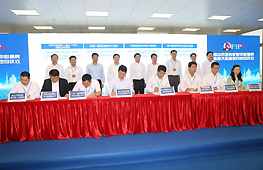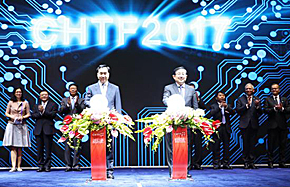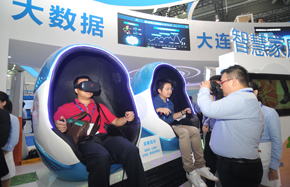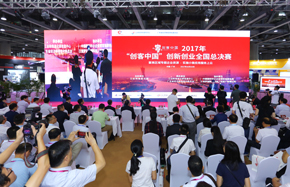Safeguard rights and promote integration
The country has made rapid progress in safeguarding the rights of persons with disabilities since its founding 70 years ago. China’s cause of disability has been developing under the theme of “equality, participation and sharing”.
People with disabilities are equal members of human society. In the new era, people’s needs for a better life, including those of people with disabilities, means the individual’s full development in an integrated society.
To realize social integration, equality is the precondition, participation is the method and sharing is the target.
Equality is the opposite of discrimination; it includes opposing direct and indirect discrimination and actively providing reasonable convenience for people with disabilities to realize virtual equality.
Participation refers to promotion of accessibility in the fields of physical environment, information exchange and public services, which ensures that persons with disabilities have access to convenience and support in public and private life, express their opinions, make their own decisions and influence significant decisions that affect them.
Sharing can guarantee that people with disabilities will not be left behind in the course of completing the building of a moderately prosperous society in all respects. Persons with disabilities should share the achievements of implementing the reform and opening-up policies brought by a strong and prosperous country. An integrated society is also a law-based society.
In the area of integrated education, the legal framework contains the Compulsory Education Law, the Higher Education Law, Regulations on the Education of Persons with Disabilities and so on, all designed to fully develop personalities, talents and creativity of people with disabilities, as well as their intelligence and physical abilities.
Recent years have witnessed our great efforts in integrated education. We have built up barrier-free environments in the public transportation system and in our schools; we have given full play to the role of the Expert Committee on Education of Persons with Disabilities in assessing, consulting and advising children with disabilities; we have pushed forward effective connections between education, civil affairs, health and disability sectors; and we have actively publicized to parents and others that integration is not only for students with disabilities but is also for the sense of humanity, personality and creativity of all members of an educated society.
In the area of employment, the legal framework contains the Labor Law, the Employment Promotion Law, the Regulations on the Employment of Persons with Disabilities and so on. Besides, the Supreme People's Court has included equal employment disputes into general personality rights, which provides a stronger legal safeguard in equal employment for people with disabilities. The laws and regulations are designed to ensure that people with disabilities can enjoy the right to work on an equal basis with others.
Various efforts have been made to build access to employment. We have built up barrier-free environments in the public transportation system and at the workplace; we have explored and promoted supportive employment patterns that provide sustained assistance on an individual basis and enable persons with disabilities to obtain competitive equal pay and promotion opportunities in integrated workplaces; we have enhanced social security for workers with disabilities, such as the inclusion of rehabilitation programs needed on a daily basis; we have encouraged technological innovation, regulated employers to provide reasonable convenience for employees with disabilities and explained available tax and fee preferences, resource inputs and legal liability; we have eliminated multiple discriminations faced by women with disabilities to ensure equal opportunities for entry, remuneration, promotion and training, and to prevent sexual harassment in the workplace; and we have upheld the rights of people with disabilities as laborers and builders of society as well as their constitutional rights.
In the judicial area, the legal framework contains the General Provisions of the Civil Law, Tort Law, and Mental Health Law and so on, which is designed to realize all the inherent, universal and indivisible fundamental rights, including the rights of life, freedom and personal security as well as privacy.
Efforts have been put into practice. We have built up barrier-free environments in public transportation systems and in public legal services; we have included audio, video (with sign language and subtitles) and other easy-to-read designs into the publicizing of the law; we have provided convenient services for people with disabilities in accordance with their specific needs; we have trained judicial practitioners to promote their concepts of disability equality and barrier-free communication skills as well as recognition of the legal capacity and lawsuit qualifications of persons with disabilities; we have also mobilized people with legal knowledge, including community lawyers, co-coordinators and mediators of people with disabilities to establish legal and judicial protection networks around people with disabilities.
In addition, in areas like community rehabilitation, self-reliance, marriage and family, protection of rights of people with disabilities should be based on the concepts of human rights under corresponding legal frameworks and we should strive to explore a wide range of practical integration channels.
Specific regulations like the Convention on the Rights of Persons with Disabilities, the Law on the Protection of Persons with Disabilities and Regulations on the Building of an Accessible Environment, together with the principle of “equality, participation and sharing”, help persons with disabilities integrate into society and become the participants, contributors and holders of economic and social development.
The author is Zhang Wanhong, executive dean and a professor at the Institute of Human Rights of Wuhan University.
This is a translation of an excerpt of a Chinese article.





















